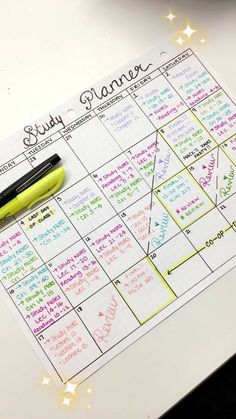Table of Contents
Introduction

Conquering nursing school can be very demanding. The nursing school is a journey, filled with challenges that test your knowledge, resilience, and commitment. Long hours of study, complex concepts, and the pressure of clinical rotations can feel overwhelming. But within these challenges lies the potential for immense reward – a fulfilling career dedicated to caring for others and making a tangible difference in their lives.
To navigate this path to allow conquering nursing school successfully, a powerful tool lies at your disposal: SMART goals. SMART goals are not just a catchy acronym; they are a strategic framework for achieving success by setting clear, actionable, and measurable targets. By implementing SMART goals, you can transform your aspirations into tangible achievements, conquering each hurdle with focus and determination.
This article explores how to leverage SMART goals to master the complexities of nursing school. We will delve into the meaning of SMART goals, demonstrate their application in various aspects of your journey, and guide you in crafting an effective action plan to reach your full potential.
Understanding SMART Goals For Conquering Nursing School
SMART goals are a goal-setting framework that ensures your targets are well-defined, achievable, and relevant to your overall success. The acronym stands for:
- Specific: Clearly define your goal. Avoid vague statements and ensure your goal is precise and unambiguous.
- Measurable: Establish concrete indicators to track your progress. This allows you to objectively assess your achievements and make adjustments as needed.
- Achievable: Set realistic goals that challenge you while remaining within your capabilities. Avoid setting yourself up for failure with overly ambitious targets.
- Relevant: Ensure your goals align with your overall objectives and contribute to your ultimate success in nursing school.
- Time-Bound: Assign specific deadlines to your goals. This creates a sense of urgency and helps you stay on track with your progress.
The benefits of using SMART goals extend beyond mere organization and can help in conquering nursing school. They provide clear direction and focus, preventing you from getting lost in the vast syllabus. Moreover, they ignite motivation by giving you tangible milestones to celebrate as you progress. By breaking down large objectives into smaller, manageable steps, SMART goals make the journey feel less daunting and more achievable.
Let’s illustrate the difference between non-SMART and SMART goals in the context of nursing school:
Non-SMART: I want to do well in my anatomy and physiology class.
SMART: I will achieve an 85% average on all exams in my anatomy and physiology class by the end of the semester, by attending every lecture, completing all assigned readings, and participating actively in study groups.
Conquering Academics with SMART Goals
Academics form the cornerstone of your nursing education. Here’s how to use SMART goals to conquer the challenges of mastering complex concepts and excelling in your courses:
Specific Goals:
- Mastering Key Concepts: Instead of aiming to “understand” a concept, set a SMART goal like: “I will be able to explain the process of cellular respiration using my own words, including the roles of each key molecule involved, by the end of the week.”
- Exam Preparation: Instead of saying, “I will study for the exam,” set a SMART goal: “I will achieve a score of 80% or higher on the upcoming pharmacology exam by reviewing all lecture notes and completing 10 practice questions daily for the next two weeks.”
Measurable Goals:
- Tracking Progress: Utilize various methods to measure your progress. For example:
- Practice Quizzes: Regularly assess your understanding through self-made quizzes or online resources.
- Concept Maps: Create visual representations of complex concepts to solidify your grasp.
- Flashcard Reviews: Use flashcards to reinforce key terms and definitions.
- Utilizing Resources: Set SMART goals to leverage available resources:
- “I will attend at least one study group meeting per week to discuss challenging concepts with my peers.”
- “I will schedule a tutoring session with the university’s learning center for additional support in mastering specific concepts.”
Achievable Goals:
- Setting Realistic Expectations: While pushing yourself is essential, set realistic goals based on your learning style and time constraints. For instance, aim to complete 2-3 chapters per day instead of trying to cover the entire textbook in a single session.
- Balancing Workload: Divide your study time effectively across all your courses. For example: “I will dedicate 3 hours per day to studying anatomy, 2 hours to pharmacology, and 1 hour to nursing fundamentals, ensuring I cover all subjects adequately.”
Relevant Goals:
- Aligning Goals with Program Requirements: Ensure your goals directly relate to the course objectives and program expectations. For instance, if your nursing program emphasizes patient communication skills, set SMART goals to improve your verbal and nonverbal communication techniques.
Time-Bound Goals:
- Setting Deadlines: Create specific timelines for completing assignments, studying for exams, and mastering concepts. For example: “I will complete the anatomy and physiology assignment by the end of this week, allowing myself 2 days for research and 1 day for writing.”
- Scheduling Study Sessions: Utilize SMART goals to build consistent and efficient study habits. For example: “I will dedicate 2 hours every Monday, Wednesday, and Friday from 7-9 PM to study for my upcoming pharmacology exam.”
Conquering Clinical Rotations with SMART Goals

Clinical rotations are the real-world application of your theoretical knowledge. SMART goals can guide you in developing essential clinical skills, applying theory to practice, and providing quality patient care.
Specific Goals:
- Developing Clinical Skills: Target specific skills to be acquired during each rotation. For example:
- “I will be able to competently administer intramuscular injections to patients by the end of my medical-surgical rotation.”
- “I will be able to accurately assess a patient’s vital signs and identify potential abnormalities within 5 minutes of entering the room.”
- Applying Theory to Practice: Formulate SMART goals to bridge the gap between theoretical knowledge and practical application. For instance:
- “I will demonstrate understanding of the nursing process by applying it to patient care scenarios during each clinical shift, documenting my assessment, planning, implementation, and evaluation of care.”
Measurable Goals:
- Self-Evaluation: Develop plans for self-assessment and feedback during clinical rotations.
- “I will complete a reflective journal entry after each clinical shift, documenting my successes, challenges, and areas for improvement.”
- “I will seek feedback from my clinical instructor at the end of each week to identify strengths and areas that require further development.”
- Demonstrating Competence: Set measurable goals to showcase competency with nursing procedures and patient care. For example:
- “I will successfully complete 5 venipuncture procedures with accurate blood draws by the end of my clinical rotation.”
- “I will demonstrate the ability to accurately administer medications to patients, ensuring safe and effective delivery.”
Achievable Goals:
- Identifying Learning Needs: Set goals to identify your individual learning needs during clinical placements. For instance:
- “I will observe at least two skilled nurses administering intravenous fluids during my rotation, noting their techniques and asking questions to clarify any uncertainties.”
- Seeking Guidance from Instructors: Develop SMART goals for seeking guidance and feedback from instructors while on rotation. For example:
- “I will schedule weekly one-on-one meetings with my clinical instructor to discuss my progress and address any areas where I need further support.”
Relevant Goals:
- Focusing on Patient-Centered Care: Tailor your goals to prioritize quality patient care and communication during rotations. For example:
- “I will actively engage in patient education, ensuring they understand their condition, medications, and care plan before discharge.”
- Adhering to Professional Standards: Set goals to adhere to ethical guidelines and professional conduct throughout clinical experiences. For example:
- “I will demonstrate respect for patient confidentiality by adhering to HIPAA regulations and avoiding unauthorized disclosure of patient information.”
Time-Bound Goals:
- Practicing Skills: Develop SMART goals for practicing specific skills during designated times within each clinical rotation. For instance:
- “I will dedicate 30 minutes every day during my medical-surgical rotation to practice inserting urinary catheters under the supervision of a licensed nurse.”
- Reflecting on Experiences: Set time-bound goals for personal reflection and learning analysis after each clinical shift. For example:
- “I will spend 15 minutes after each clinical shift to reflect on my experiences, noting key learnings, areas for improvement, and any unresolved questions.”
Conquering Self-Care with SMART Goals

Nursing school can be demanding, not just intellectually but also emotionally and physically. To maintain your well-being, prioritize self-care by setting SMART goals that promote a healthy work-life balance.
Specific Goals:
- Prioritizing Physical Health: Set SMART goals for maintaining physical health. For example:
- “I will exercise for 30 minutes, 3 times a week, incorporating cardio and strength training to boost my energy levels and reduce stress.”
- Fostering Mental Well-being: Develop SMART goals to manage stress and emotional well-being through relaxation techniques. For example:
- “I will practice mindfulness meditation for 10 minutes daily, focusing on my breath and calming my mind.”
Measurable Goals:
- Tracking Habits: Explain methods for monitoring progress towards self-care goals. For example:
- Sleep Trackers: Utilize a sleep tracker to monitor your sleep patterns and identify any areas for improvement.
- Activity Logs: Maintain a log to track your exercise sessions and ensure consistency.
- Seeking Support: Set SMART goals for reaching out to support systems when needed. For example:
- “I will schedule a weekly call with a close friend to discuss my experiences and share my feelings.”
Achievable Goals:
- Creating a Realistic Schedule: Balance academic demands with self-care activities to avoid burnout. For example:
- “I will allocate at least 1 hour each evening for relaxation and personal activities, such as reading a book, taking a bath, or spending time with family.”
- Setting Boundaries: Set SMART goals for establishing boundaries between study time, personal time, and social interaction. For example:
- “I will avoid studying in bed to create a clear separation between my work and sleep environment.”
Relevant Goals:
- Maintaining a Healthy Work-Life Balance: Ensure self-care goals promote overall well-being and contribute to academic success. For example:
- “I will prioritize adequate sleep, healthy nutrition, and regular exercise to maintain my physical and mental health, leading to improved focus and concentration during studies.”
Time-Bound Goals:
- Dedicating Time for Relaxation: Develop SMART goals to ensure dedicated time for relaxation and stress management techniques. For example:
- “I will schedule 30 minutes every Sunday afternoon for a relaxing activity, such as going for a walk in nature or listening to calming music.”
- Scheduling Self-Care Activities: Create time-bound goals for activities that promote physical and mental well-being. For example:
- “I will schedule a weekly yoga class to improve flexibility, reduce stress, and enhance my overall well-being.”
Conquering Challenges with SMART Goals

- Time Management: Juggling coursework, clinical rotations, and personal life can be overwhelming.
- Exam Anxiety: The pressure of exams can lead to stress and anxiety, impacting performance.
- Balancing Work and School: Maintaining a job while pursuing your nursing education can create additional demands on your time and energy.
Nursing school presents numerous challenges that can test your resilience. Some common obstacles include:
SMART goals can help you tackle these challenges head-on:
- Time Management: “I will create a weekly schedule, allocating specific time slots for studying, clinical rotations, and personal activities.”
- Exam Anxiety: “I will practice deep breathing exercises for 10 minutes before each exam to manage anxiety and improve focus.”
- Balancing Work and School: “I will communicate with my employer to adjust my work schedule, ensuring I have sufficient time for my academic commitments.”
Building a SMART Goal Action Plan

Creating a detailed action plan is essential for achieving your SMART goals.
- Break Down Goals: Divide your SMART goals into smaller, actionable steps with specific tasks and timelines. For instance, instead of simply saying “I will master the concepts in my anatomy and physiology class,” break it down into:
- Task 1: Review lecture notes for chapter 1 by the end of the week.
- Task 2: Complete 10 practice questions related to chapter 1 by the end of the weekend.
- Task 3: Attend a study group meeting to discuss any challenging concepts from chapter 1.
- Monitor Progress: Regularly track your progress toward each goal and make adjustments as needed. Utilize a planner, calendar, or a goal-tracking app to monitor your progress.
- Adapt Action Plans: Be flexible and adaptable. If you encounter obstacles or unexpected challenges, revise your action plan accordingly. The key is to stay on track and maintain momentum towards your goals.
Conclusion
Conquering nursing school is a journey that requires dedication, resilience, and a strategic approach. SMART goals provide a powerful framework for achieving success in every aspect of your journey, from mastering academic concepts to excelling in clinical rotations and prioritizing self-care. By setting clear, measurable, achievable, relevant, and time-bound targets, you can transform your aspirations into tangible achievements.
Embrace the challenges, celebrate your successes, and remember that the rewards of a fulfilling nursing career await you. Embrace the power of SMART goals and embark on your journey to becoming a skilled and compassionate nurse, making a real difference in the lives of others. This is your chance to conquer nursing school and shape a bright future filled with purpose and fulfillment.







